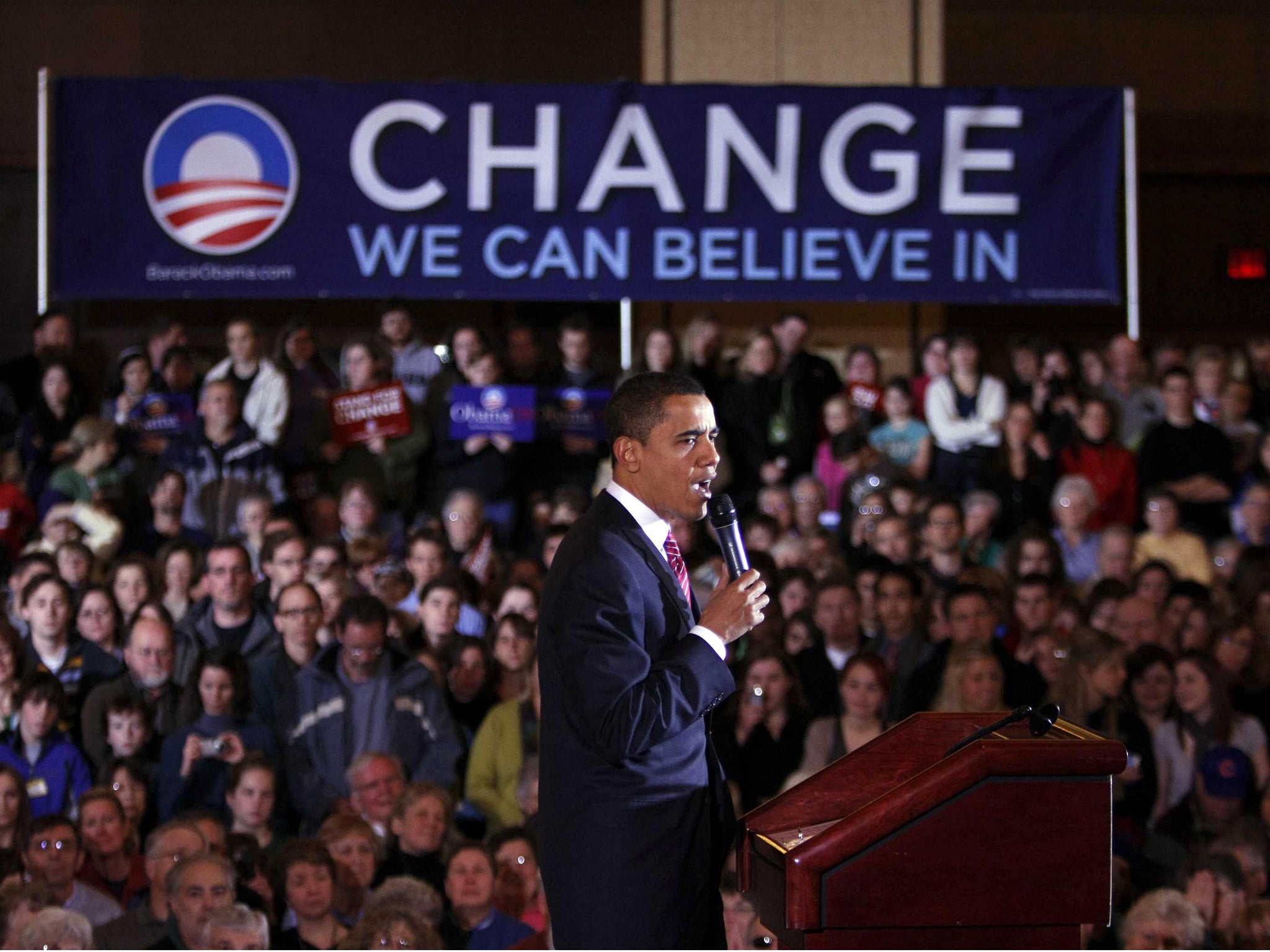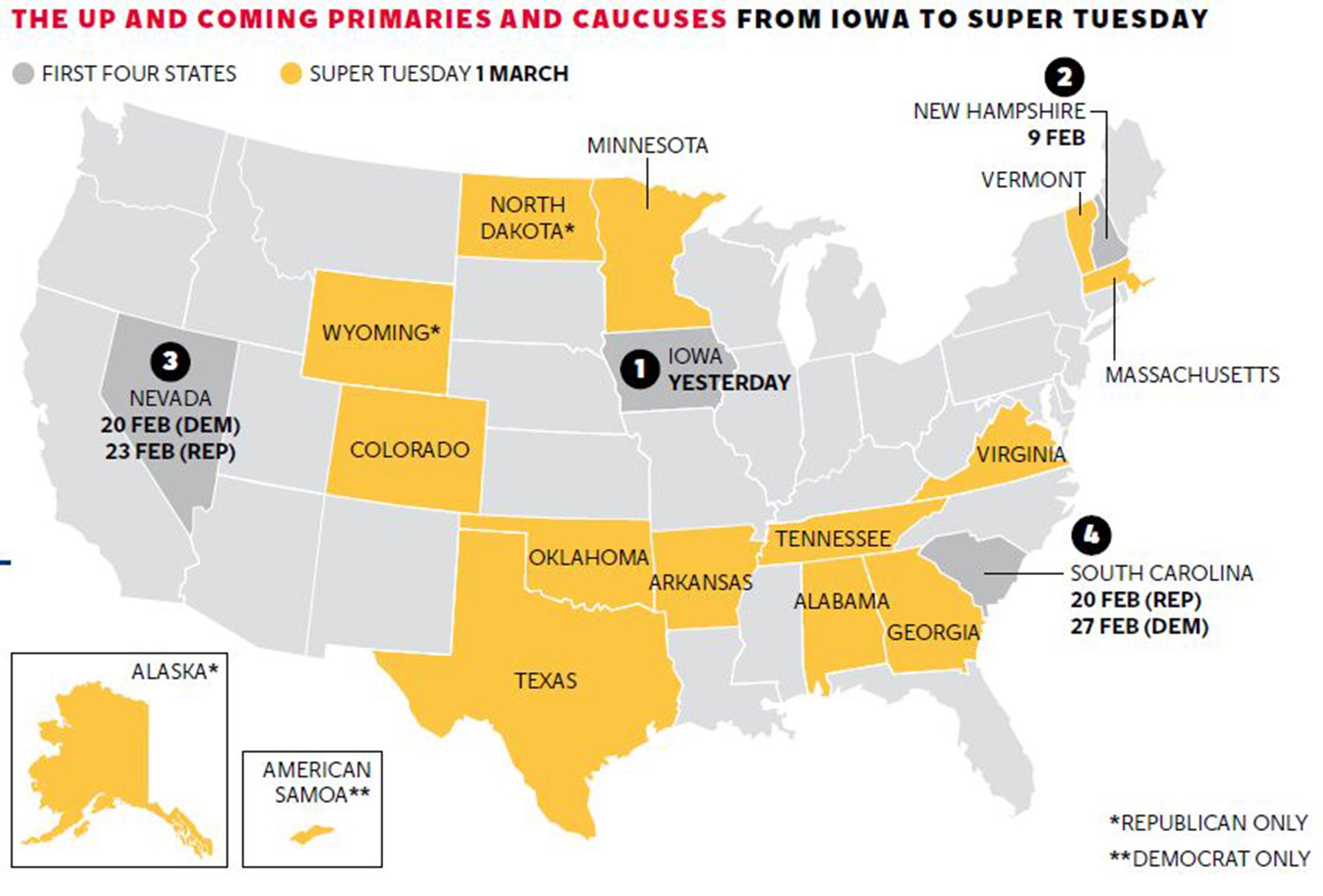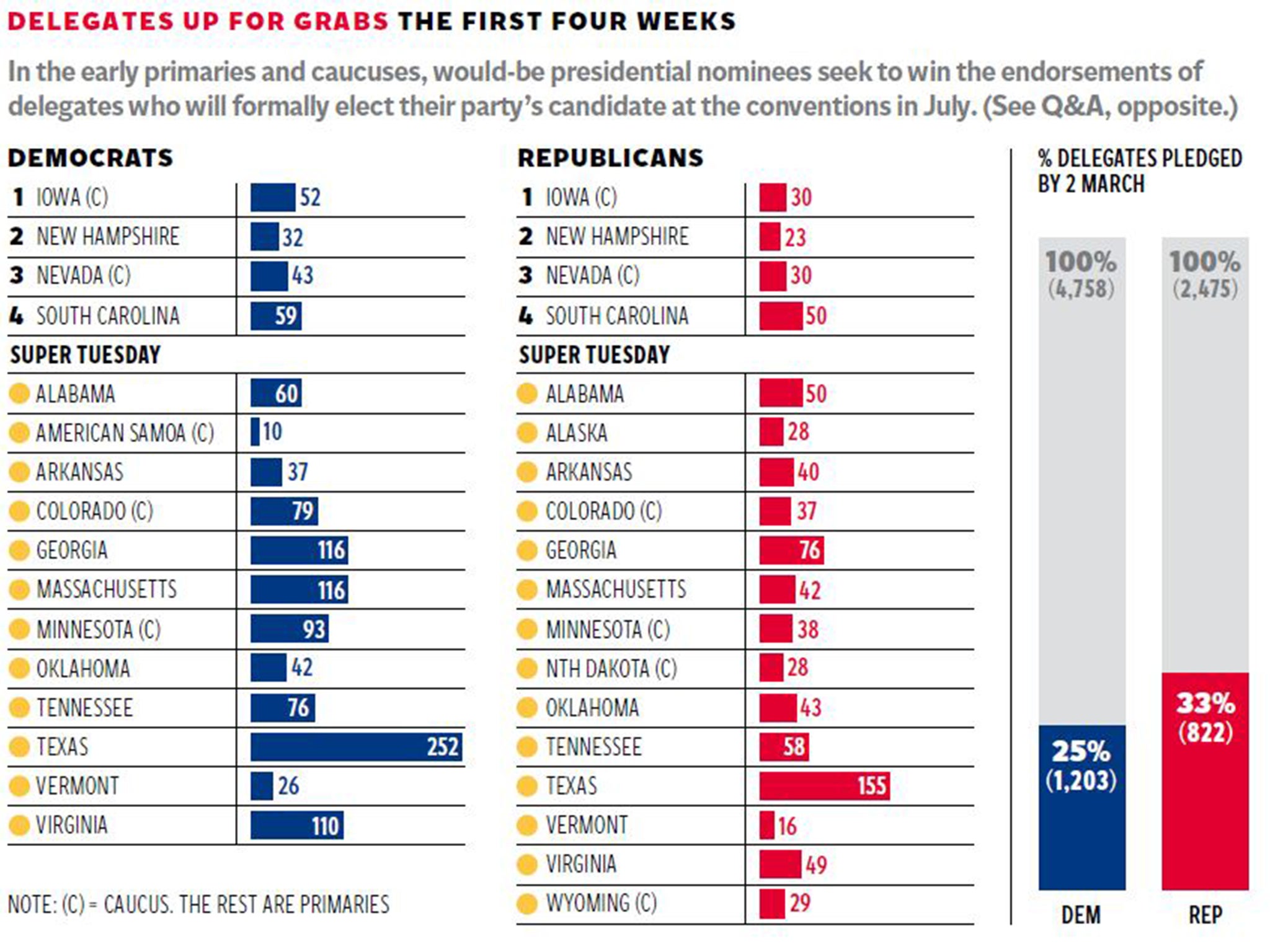US Election: From Iowa to Super Tuesday, how the presidential candidate selection process works
Party conventions can be the scene of unscripted drama if no candidate has yet emerged as the winner

Q | Why is the Iowa caucus so important?
A | The Iowa caucus is when the hot air stops and people actually cast a vote that counts. It is the day supporters of each party who are also registered voters “caucus” in gyms and school halls to select their preference, in an arcane fashion that tends to infuriate the 315.8 million Americans who do not live in the small, conservative and predominately white state. The process can have a huge impact on the rest of the campaign.
A candidate must make a good showing. According to Norm Sterzenbach, a former executive director of the Iowa Democratic Party, since 1792 nobody who came lower than third ended up winning the nomination.
Q | What’s next?
A | With barely a pause to finish their pork steaks, candidates and pundits head to New Hampshire, which holds its primary election on 9 February. Unlike Iowa, New Hampshire’s vote is like an ordinary election: a secret ballot among party supporters, with polls open all day. Though it only has a handful of voting delegates, the Granite State plays an outsized role because it can either cement a candidate’s position, or allow someone who slipped in Iowa to bounce back. In 1992, Bill Clinton’s strong showing – eventually coming second after many had written him off – allowed him to dub himself the “Comeback Kid”.


Q | What lies to the south and west?
A | After the freezing north and Midwest, the candidates head to Nevada and South Carolina, which will both test a candidate’s depth in very different states. In South Carolina, black voters will be of vital importance.
Q | What’s so super about Tuesday?
A | Super Tuesday, this year on 1 March, is the big one. There are 15 primary votes taking place, from Alabama to Wyoming, and this is often the day that makes or breaks a candidate. It should certainly thin out the Republican field. The last of the primaries is Washington DC’s on 14 June.
By now, it should be clear who the two nominees are, based on the number of delegates to their parties’ national convention they have secured.
Q | Is there a convention to the conventions?
A | The party conventions – the Republican event will be from 18-21 July in Cleveland and the Democrats’ between 25-28 July in Philadelphia – are a chance for the party’s candidate to smile to the troops, console the losers and electrify those watching on television.
They can also be the scene of unscripted drama if no candidate has yet emerged as the winner. In these cases the event is considered a “brokered convention”, and the parties come up with a nominee through more voting and horse trading. While once common, the last winning nominee produced by a brokered convention was Franklin D Roosevelt in 1932.
Follow this link for the latest coverage of the Iowa caucus: http://www.independent.co.uk/topic/iowa-caucus
Join our commenting forum
Join thought-provoking conversations, follow other Independent readers and see their replies
Comments